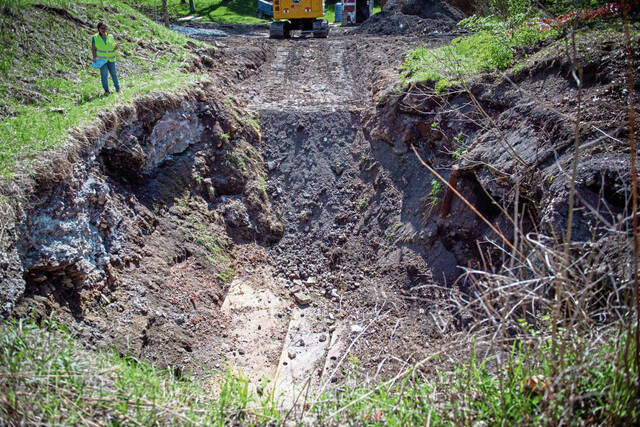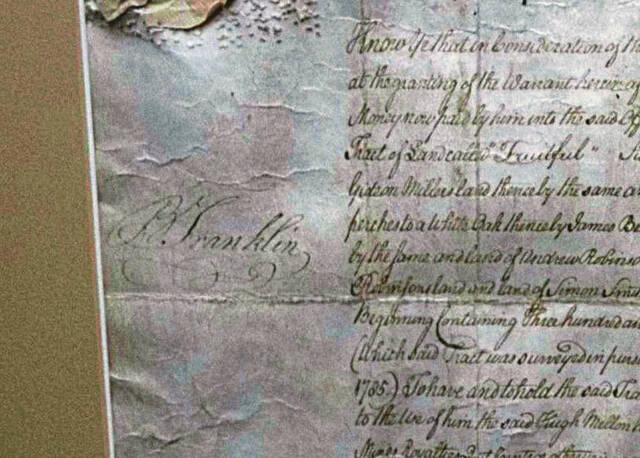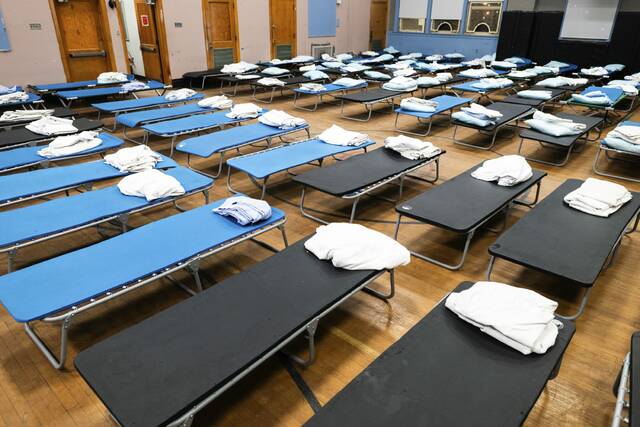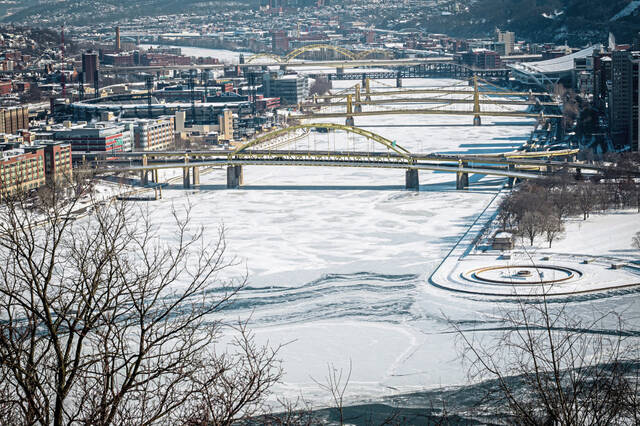Remember when old movies and television shows gave us the impression quicksand was the great scourge lurking beneath our feet?
Nope. The number of deaths due to quicksand is so small it’s not statistically significant enough to track.
But sinkholes are another story.
The number of sinkholes is too varied to keep a database, according to the U.S. Geological Survey. What is more easily calculated is the cost: about $300 million a year.
Pennsylvania is on a short list of states with the most sinkhole damage. It makes sense for multiple reasons.
The state’s geology and topography set it up for catastrophe. There is the bedrock, largely limestone, which is easily dissolved compared to other rock. Then there is the vast network of water, from rivers and streams crisscrossing the surface to the springs bubbling beneath.
Then there is the human element. The construction we do can change the way water flows. The mining that is our economic and industrial history can threaten stability. There is a reason “undermine” means gradual weakening.
Sometimes sinkholes aren’t even sinkholes in the traditional sense. Rather they are the failure of a man-made structure, like the abandoned mine that claimed Elizabeth Pollard’s life in December 2024 or the Pittsburgh street that collapsed under a bus in 2019.
The state Department of Conservation and Natural Resources encourages Pennsylvanians to investigate the local risks, such as mines and geology, as well as the history of their properties. It also tells them to maintain sinkhole insurance.
That can be the tough part. Not every insurance company is willing to offer it.
State Rep. Emily Kinkead, D-Brighton Heights, has introduced a bill that would create a Landslide and Sinkhole Insurance Program with $10 million in seed money from the General Fund.
This is not a new idea. As reported by Spotlight PA, it’s similar to another plan to cover damage from collapsed mines. It feels akin to flood insurance, which is provided through the National Flood Insurance Program, filling a gap not accommodated by the insurance industry.
The bill awaits a vote by the full House. It should get one.
Sinkholes are not an urban or rural issue. They are not Democratic or Republican. The loss of a home or business due to a geological failing is not the fault of the owner. Neither is the inability to get insurance when insurance for the ground disappearing under your foundation is hard to find.
This is exactly the situation government exists to fill. It is a problem that cannot be tackled by business and which protects citizens.
It’s time for lawmakers to stop worrying about quicksand — the political issues that aren’t really the deathtraps we’ve been taught to fear — and put their effort into doing something about the real problems under their feet.








